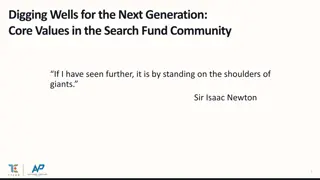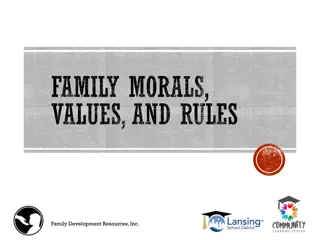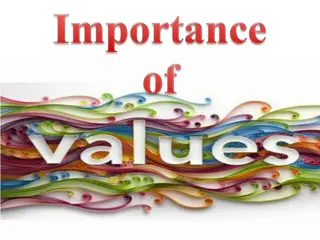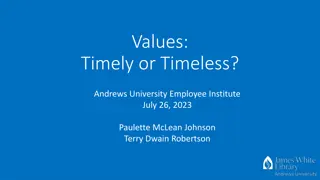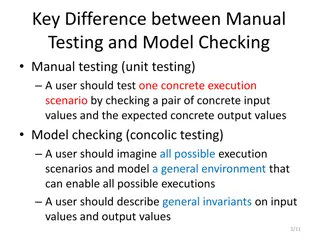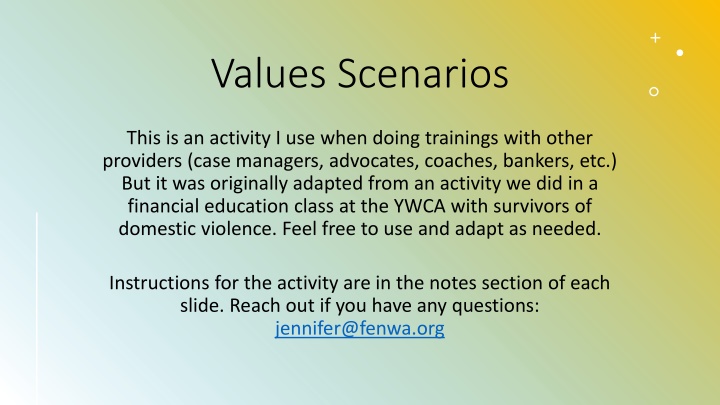
Financial Education Activity for Values-based Decision Making
Engage in a values-based activity originally designed for financial education classes, now adapted for training sessions with various professionals. Participants explore personal values through scenarios and group discussions, enhancing decision-making skills. Approach money management with curiosity, respect individuals' expertise, and empower them to make informed choices aligned with their values.
Download Presentation

Please find below an Image/Link to download the presentation.
The content on the website is provided AS IS for your information and personal use only. It may not be sold, licensed, or shared on other websites without obtaining consent from the author. If you encounter any issues during the download, it is possible that the publisher has removed the file from their server.
You are allowed to download the files provided on this website for personal or commercial use, subject to the condition that they are used lawfully. All files are the property of their respective owners.
The content on the website is provided AS IS for your information and personal use only. It may not be sold, licensed, or shared on other websites without obtaining consent from the author.
E N D
Presentation Transcript
Values Scenarios This is an activity I use when doing trainings with other providers (case managers, advocates, coaches, bankers, etc.) But it was originally adapted from an activity we did in a financial education class at the YWCA with survivors of domestic violence. Feel free to use and adapt as needed. Instructions for the activity are in the notes section of each slide. Reach out if you have any questions: jennifer@fenwa.org
Values Scenarios Review the list of values. VERY QUICKLY note down which 5-10 values are most important to you. Get into small groups. Pick one or two scenarios and discuss with the group. What do you do and why? What values did you use to make your decisions about your scenarios?
You got a new job, and you want to celebrate your first paycheck. Your child s father/mother (your ex) asks to borrow $50. Your teenage son wants you to buy Nike shoes that are $200. Your friends invite you to go out for the evening but it s towards the end of the month and you re running low on funds. You know it could include paying for dinner, drinks, cover charge, etc. You re at the end of the month and you have two bills to pay, your cell phone bill and your car insurance. But you only enough to pay one of them. Your child s birthday is coming, and you really want to have a nice party for him/her and get a nice gift. You get an unexpected bonus at work and there are many things you re thinking about doing having some fun, paying a bill, saving some, buying a gift for kids, etc. You are working in an office and are still new. There is an event coming up (office party, potluck, baby shower, etc.) and everyone is contributing. Your toddler wants a toy or candy at the grocery store and is throwing a tantrum on the floor.
Financial Coaching Approach People are creative, resourceful and whole Honor the expertise people already have Support people in: Selecting their own goals and how they want to reach them Moving from survival to planning Identifying their resources Provide information, explore options, and ask questions that help lead people to their own answers Don t tell people what to do! Approach with curiosity rather than judgment Walk alongside rather than leading Money management is a journey we are all on we don t have to be experts! We all make the best decisions we can in the moment, balancing our values, goals, money beliefs, emotions, and more No one wants to be told how to manage their own money

